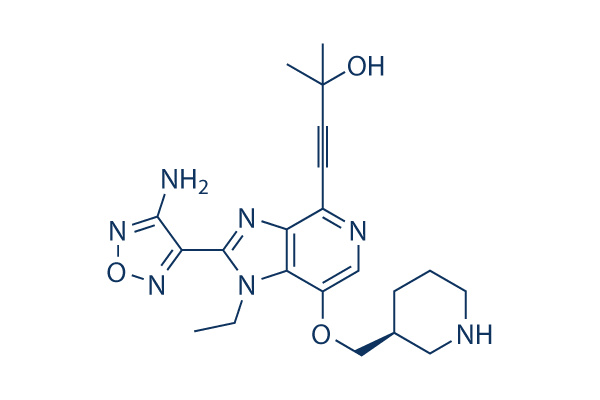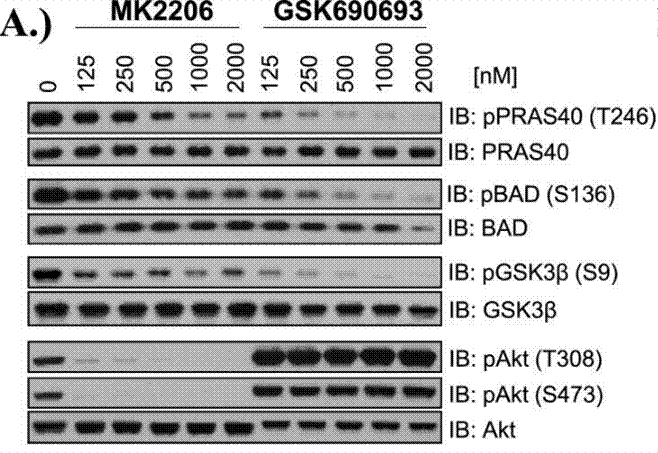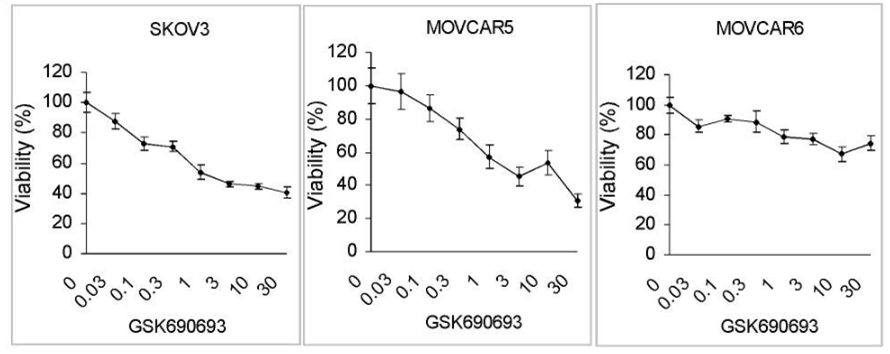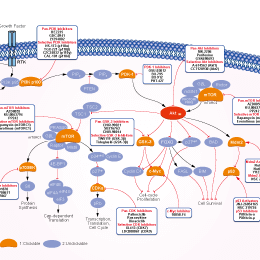
- Bioactive Compounds
- By Signaling Pathways
- PI3K/Akt/mTOR
- Epigenetics
- Methylation
- Immunology & Inflammation
- Protein Tyrosine Kinase
- Angiogenesis
- Apoptosis
- Autophagy
- ER stress & UPR
- JAK/STAT
- MAPK
- Cytoskeletal Signaling
- Cell Cycle
- TGF-beta/Smad
- DNA Damage/DNA Repair
- Compound Libraries
- Popular Compound Libraries
- Customize Library
- Clinical and FDA-approved Related
- Bioactive Compound Libraries
- Inhibitor Related
- Natural Product Related
- Metabolism Related
- Cell Death Related
- By Signaling Pathway
- By Disease
- Anti-infection and Antiviral Related
- Neuronal and Immunology Related
- Fragment and Covalent Related
- FDA-approved Drug Library
- FDA-approved & Passed Phase I Drug Library
- Preclinical/Clinical Compound Library
- Bioactive Compound Library-I
- Bioactive Compound Library-Ⅱ
- Kinase Inhibitor Library
- Express-Pick Library
- Natural Product Library
- Human Endogenous Metabolite Compound Library
- Alkaloid Compound LibraryNew
- Angiogenesis Related compound Library
- Anti-Aging Compound Library
- Anti-alzheimer Disease Compound Library
- Antibiotics compound Library
- Anti-cancer Compound Library
- Anti-cancer Compound Library-Ⅱ
- Anti-cancer Metabolism Compound Library
- Anti-Cardiovascular Disease Compound Library
- Anti-diabetic Compound Library
- Anti-infection Compound Library
- Antioxidant Compound Library
- Anti-parasitic Compound Library
- Antiviral Compound Library
- Apoptosis Compound Library
- Autophagy Compound Library
- Calcium Channel Blocker LibraryNew
- Cambridge Cancer Compound Library
- Carbohydrate Metabolism Compound LibraryNew
- Cell Cycle compound library
- CNS-Penetrant Compound Library
- Covalent Inhibitor Library
- Cytokine Inhibitor LibraryNew
- Cytoskeletal Signaling Pathway Compound Library
- DNA Damage/DNA Repair compound Library
- Drug-like Compound Library
- Endoplasmic Reticulum Stress Compound Library
- Epigenetics Compound Library
- Exosome Secretion Related Compound LibraryNew
- FDA-approved Anticancer Drug LibraryNew
- Ferroptosis Compound Library
- Flavonoid Compound Library
- Fragment Library
- Glutamine Metabolism Compound Library
- Glycolysis Compound Library
- GPCR Compound Library
- Gut Microbial Metabolite Library
- HIF-1 Signaling Pathway Compound Library
- Highly Selective Inhibitor Library
- Histone modification compound library
- HTS Library for Drug Discovery
- Human Hormone Related Compound LibraryNew
- Human Transcription Factor Compound LibraryNew
- Immunology/Inflammation Compound Library
- Inhibitor Library
- Ion Channel Ligand Library
- JAK/STAT compound library
- Lipid Metabolism Compound LibraryNew
- Macrocyclic Compound Library
- MAPK Inhibitor Library
- Medicine Food Homology Compound Library
- Metabolism Compound Library
- Methylation Compound Library
- Mouse Metabolite Compound LibraryNew
- Natural Organic Compound Library
- Neuronal Signaling Compound Library
- NF-κB Signaling Compound Library
- Nucleoside Analogue Library
- Obesity Compound Library
- Oxidative Stress Compound LibraryNew
- Plant Extract Library
- Phenotypic Screening Library
- PI3K/Akt Inhibitor Library
- Protease Inhibitor Library
- Protein-protein Interaction Inhibitor Library
- Pyroptosis Compound Library
- Small Molecule Immuno-Oncology Compound Library
- Mitochondria-Targeted Compound LibraryNew
- Stem Cell Differentiation Compound LibraryNew
- Stem Cell Signaling Compound Library
- Natural Phenol Compound LibraryNew
- Natural Terpenoid Compound LibraryNew
- TGF-beta/Smad compound library
- Traditional Chinese Medicine Library
- Tyrosine Kinase Inhibitor Library
- Ubiquitination Compound Library
-
Cherry Picking
You can personalize your library with chemicals from within Selleck's inventory. Build the right library for your research endeavors by choosing from compounds in all of our available libraries.
Please contact us at [email protected] to customize your library.
You could select:
- Antibodies
- Bioreagents
- qPCR
- 2x SYBR Green qPCR Master Mix
- 2x SYBR Green qPCR Master Mix(Low ROX)
- 2x SYBR Green qPCR Master Mix(High ROX)
- Protein Assay
- Protein A/G Magnetic Beads for IP
- Anti-Flag magnetic beads
- Anti-Flag Affinity Gel
- Anti-Myc magnetic beads
- Anti-HA magnetic beads
- Magnetic Separator
- Poly DYKDDDDK Tag Peptide lyophilized powder
- Protease Inhibitor Cocktail
- Protease Inhibitor Cocktail (EDTA-Free, 100X in DMSO)
- Phosphatase Inhibitor Cocktail (2 Tubes, 100X)
- Cell Biology
- Cell Counting Kit-8 (CCK-8)
- Animal Experiment
- Mouse Direct PCR Kit (For Genotyping)
- New Products
- Contact Us
GSK690693
GSK690693 is a pan-Akt inhibitor targeting Akt1/2/3 with IC50 of 2 nM/13 nM/9 nM in cell-free assays, also sensitive to the AGC kinase family: PKA, PrkX and PKC isozymes. GSK690693 also potently inhibits AMPK and DAPK3 from the CAMK family with IC50 of 50 nM and 81 nM, respectively. GSK690693 affects Unc-51-like autophagy activating kinase 1 (ULK1) activity, robustly inhibits STING-dependent IRF3 activation. Phase 1.

GSK690693 Chemical Structure
CAS No. 937174-76-0
Purity & Quality Control
Batch:
Purity:
99.09%
99.09
GSK690693 Related Products
| Related Targets | Akt1 Akt2 Akt3 | Click to Expand |
|---|---|---|
| Related Products | MK-2206 2HCl Perifosine SC79 Capivasertib (AZD5363) Ipatasertib (GDC-0068) Triciribine (API-2) CCT128930 Afuresertib (GSK2110183) A-674563 HCl AT7867 Oridonin Akti-1/2 PHT-427 Miransertib (ARQ 092) HCl AT13148 Uprosertib (GSK2141795) Miransertib (ARQ-092) SC66 Deguelin ML-9 HCl | Click to Expand |
| Related Compound Libraries | Kinase Inhibitor Library PI3K/Akt Inhibitor Library Apoptosis Compound Library Cell Cycle compound library NF-κB Signaling Compound Library | Click to Expand |
Signaling Pathway
Cell Data
| Cell Lines | Assay Type | Concentration | Incubation Time | Formulation | Activity Description | PMID |
|---|---|---|---|---|---|---|
| LNCaP | Proliferation assay | Antiproliferative activity against human LNCaP cells, IC50=20 nM | 18800763 | |||
| BT474 | Proliferation assay | Antiproliferative activity against human BT474 cells, IC50=50 nM | 18800763 | |||
| Sf9 | Function assay | Inhibition of human recombinant ROCK1 expressed in Sf9 cells, IC50=0.89 μM | 18800763 | |||
| NCI-H460 | Growth inhibition assay | 72 h | Growth inhibition of human NCI-H460 cells after 72 hrs by coulter counter method, IC50=5.4 μM | 24900862 | ||
| PC3 | Proliferation assay | 72 h | Antiproliferative activity against human PC3 cells after 72 hrs by MTT assay, IC50=15.5 μM | 24308997 | ||
| HFF | Cytotoxic assay | Cytotoxicity against HFF cells, IC50=16.3 μM | 18800763 | |||
| LNCAP | Antiproliferative assay | Antiproliferative activity against human LNCAP cells, IC50 = 0.021 μM. | 19179070 | |||
| BT474 | Antiproliferative assay | Antiproliferative activity against human BT474 cells, IC50 = 0.069 μM. | 19179070 | |||
| BT474 | Function assay | Inhibition of GSK3-beta phosphorylation in human BT474 cells, IC50 = 0.138 μM. | 19179070 | |||
| JVM2 | Antiproliferative assay | 72 hrs | Antiproliferative activity against human JVM2 cells after 72 hrs by CellTiter Glo assay, IC50 = 1.6 μM. | 28704757 | ||
| JeKo1 | Antiproliferative assay | 72 hrs | Antiproliferative activity against human JeKo1 cells after 72 hrs by CellTiter Glo assay, IC50 = 3 μM. | 28704757 | ||
| Z138 | Antiproliferative assay | 72 hrs | Antiproliferative activity against human Z138 cells after 72 hrs by CellTiter Glo assay, IC50 = 3.1 μM. | 28704757 | ||
| SP49 | Antiproliferative assay | 72 hrs | Antiproliferative activity against human SP49 cells after 72 hrs by CellTiter Glo assay, IC50 = 4.8 μM. | 28704757 | ||
| Maver1 | Antiproliferative assay | 72 hrs | Antiproliferative activity against human Maver1 cells after 72 hrs by CellTiter Glo assay, IC50 = 5.1 μM. | 28704757 | ||
| C6 | Function assay | 24 hrs | Inhibition of Akt in rat C6 cells after 24 hrs by ELISA, IC50 = 6.97 μM. | 29966916 | ||
| C6 | Cytotoxicity assay | 24 hrs | Cytotoxicity against rat C6 cells assessed as decrease in cell viability after 24 hrs by MTT assay, IC50 = 14.5 μM. | 29966916 | ||
| A549 | Function assay | 24 hrs | Inhibition of Akt in human A549 cells after 24 hrs by ELISA, IC50 = 17.33 μM. | 29966916 | ||
| Mino | Antiproliferative assay | 72 hrs | Antiproliferative activity against human Mino cells after 72 hrs by CellTiter Glo assay, IC50 = 20.8 μM. | 28704757 | ||
| A673 | qHTS assay | qHTS of pediatric cancer cell lines to identify multiple opportunities for drug repurposing: Primary screen for A673 cells | 29435139 | |||
| RD | qHTS assay | qHTS of pediatric cancer cell lines to identify multiple opportunities for drug repurposing: Primary screen for RD cells | 29435139 | |||
| NB1643 | qHTS assay | qHTS of pediatric cancer cell lines to identify multiple opportunities for drug repurposing: Primary screen for NB1643 cells | 29435139 | |||
| SJ-GBM2 | qHTS assay | qHTS of pediatric cancer cell lines to identify multiple opportunities for drug repurposing: Primary screen for SJ-GBM2 cells | 29435139 | |||
| SK-N-MC | qHTS assay | qHTS of pediatric cancer cell lines to identify multiple opportunities for drug repurposing: Primary screen for SK-N-MC cells | 29435139 | |||
| NB-EBc1 | qHTS assay | qHTS of pediatric cancer cell lines to identify multiple opportunities for drug repurposing: Primary screen for NB-EBc1 cells | 29435139 | |||
| LAN-5 | qHTS assay | qHTS of pediatric cancer cell lines to identify multiple opportunities for drug repurposing: Primary screen for LAN-5 cells | 29435139 | |||
| MCL | Antiproliferative assay | 24 hrs | Antiproliferative activity against primary human MCL cells up to 60 uM after 24 hrs by CellTiter Glo assay | 28704757 | ||
| Click to View More Cell Line Experimental Data | ||||||
Biological Activity
| Description | GSK690693 is a pan-Akt inhibitor targeting Akt1/2/3 with IC50 of 2 nM/13 nM/9 nM in cell-free assays, also sensitive to the AGC kinase family: PKA, PrkX and PKC isozymes. GSK690693 also potently inhibits AMPK and DAPK3 from the CAMK family with IC50 of 50 nM and 81 nM, respectively. GSK690693 affects Unc-51-like autophagy activating kinase 1 (ULK1) activity, robustly inhibits STING-dependent IRF3 activation. Phase 1. | |||||||||||
|---|---|---|---|---|---|---|---|---|---|---|---|---|
| Targets |
|
| In vitro | ||||
| In vitro | GSK690693 is very selective for the Akt isoforms versus the majority of kinases in other families. However, GSK690693 is less selective for members of the AGC kinase family including PKA, PrkX, and PKC isozymes with IC50 of 24 nM, 5 nM, and 2-21 nM, respectively. GSK690693 also potently inhibits AMPK and DAPK3 from the CAMK family with IC50 of 50 nM and 81 nM, respectively, and PAK4, 5, and 6 from the STE family with IC50 of 10 nM, 52 nM, and 6 nM, respectively. GSK690693 inhibits the phosphorylation of GSK3β in tumor cells with IC50 ranging from 43 nM to 150 nM. GSK690693 treatment leads to a dose-dependent increase in the nuclear accumulation of the transcription factor FOXO3A. GSK690693 potently inhibits the proliferation of T47D, ZR-75-1, BT474, HCC1954, MDA-MB-453, and LNCaP cells with IC50 of 72 nM, 79 nM, 86 nM, 119 nM, 975 nM, and 147 nM, respectively. GSK690693 treatment induces apoptosis at concentrations >100 nM in both LNCaP and BT474 cells. [1] Consistent with the role of AKT in cell survival, GSK690693 induces apoptosis in sensitive ALL cell lines. [2] |
|||
|---|---|---|---|---|
| Kinase Assay | In vitro kinase assays | |||
| His-tagged full-length Akt1, 2, or 3 are expressed and purified from baculovirus. Activation is carried out with purified PDK1 to phosphorylate Thr308 and purified MK2 to phosphorylate Ser473. To more accurately measure time-dependent inhibition of Akt, activated Akt enzymes are incubated with GSK690693 at various concentrations at room temperature for 30 minutes before the reaction is initiated with the addition of substrate. Final reaction contains 5 nM to 15 nM Akt1, 2, and 3 enzymes; 2 μM ATP; 0.15 μCi/μL[γ-33P]ATP; 1 μM Peptide (Biotin-aminohexanoicacid-ARKR-ERAYSFGHHA-amide); 10 mM MgCl2; 25 mM MOPS (pH 7.5); 1 mM DTT; 1 mM CHAPS; and 50 mM KCl. The reactions are incubated at room temperature for 45 minutes, followed by termination with Leadseeker beads in PBS containing EDTA (final concentration, 2 mg/mL beads and 75 mM EDTA). The plates are then sealed, the beads are allowed to settle for at least 5 hours, and product formation is quantitated using a Viewlux Imager. | ||||
| Cell Research | Cell lines | T47D, ZR-75-1, BT474, HCC1954, MDA-MB-453, LNCaP, etc. | ||
| Concentrations | Dissolved in DMSO, final concentrations ~30 μM | |||
| Incubation Time | 72 hours | |||
| Method | Cells are plated at densities that allow untreated cells to grow logarithmically during the course of a 3-day assay. Briefly, cells are plated in 96- or 384-well plates and incubated overnight. Cells are then treated with GSK690693 (ranging from 30 μM-1.5 nM) and incubated for 72 hours. Cell proliferation is measured using the CellTiter Glo reagent. Data are analyzed using the XLFit curve-fitting tool for Microsoft Excel. IC50 values are obtained by fitting data to Eq, 2. |
|||
| Experimental Result Images | Methods | Biomarkers | Images | PMID |
| Western blot | pPRAS40 / PRAS40 / pBAD / BAD p-Akt / Akt / p-GSK3 / p-mTOR / mTOR / p-p70S6K / p-FoxO3a / p-FoxO1 |

|
25551293 | |
| Growth inhibition assay | Cell viability |

|
20075391 | |
| In Vivo | ||
| In vivo | A single administration of GSK690693 inhibits GSK3β phosphorylation in human breast carcinoma (BT474) xenografts in a dose- and time-dependent manner. Similarly, GSK690693 induces a reduction in phosphorylation of the Akt substrates, PRAS40, and FKHR/FKHRL1. GSK690693 also results in an acute increase in blood glucose, returning to baseline 8 to 10 hours after drug administration. Administration of GSK690693 induces reductions in phosphorylated Akt substrates in vivo, and potently inhibits the growth of human SKOV-3 ovarian, LNCaP prostate, and BT474 and HCC-1954 breast carcinoma xenografts, with maximal inhibition of 58% to 75% at the dose of 30 mg/kg/day. [1] GSK690693 exhibits efficacy irrespective of the mechanism of Akt activation involved. GSK690693 is most effective in delaying tumor progression in Lck-MyrAkt2 mice expressing a membrane-bound, constitutively active form of Akt. [3] |
|
|---|---|---|
| Animal Research | Animal Models | Female CD1 Swiss Nude mice injected with LNCaP, SKOV-3, or PANC1 cells, and C.B-17 SCID mice with HCC1954, MDA-MB-453, or BT474 cells |
| Dosages | ~30 mg/kg/day | |
| Administration | Administered via i.p. | |
| NCT Number | Recruitment | Conditions | Sponsor/Collaborators | Start Date | Phases |
|---|---|---|---|---|---|
| NCT00666081 | Withdrawn | Cancer |
GlaxoSmithKline |
April 2008 | Phase 1 |
| NCT00493818 | Terminated | Cancer |
GlaxoSmithKline |
April 2007 | Phase 1 |
Chemical Information & Solubility
| Molecular Weight | 425.48 | Formula | C21H27N7O3 |
| CAS No. | 937174-76-0 | SDF | Download GSK690693 SDF |
| Smiles | CCN1C2=C(C(=NC=C2OCC3CCCNC3)C#CC(C)(C)O)N=C1C4=NON=C4N | ||
| Storage (From the date of receipt) | |||
|
In vitro |
DMSO : 21 mg/mL ( (49.35 mM) Moisture-absorbing DMSO reduces solubility. Please use fresh DMSO.) Water : Insoluble Ethanol : Insoluble |
Molecular Weight Calculator |
|
In vivo Add solvents to the product individually and in order. |
In vivo Formulation Calculator |
||||
Preparing Stock Solutions
Molarity Calculator
In vivo Formulation Calculator (Clear solution)
Step 1: Enter information below (Recommended: An additional animal making an allowance for loss during the experiment)
mg/kg
g
μL
Step 2: Enter the in vivo formulation (This is only the calculator, not formulation. Please contact us first if there is no in vivo formulation at the solubility Section.)
% DMSO
%
% Tween 80
% ddH2O
%DMSO
%
Calculation results:
Working concentration: mg/ml;
Method for preparing DMSO master liquid: mg drug pre-dissolved in μL DMSO ( Master liquid concentration mg/mL, Please contact us first if the concentration exceeds the DMSO solubility of the batch of drug. )
Method for preparing in vivo formulation: Take μL DMSO master liquid, next addμL PEG300, mix and clarify, next addμL Tween 80, mix and clarify, next add μL ddH2O, mix and clarify.
Method for preparing in vivo formulation: Take μL DMSO master liquid, next add μL Corn oil, mix and clarify.
Note: 1. Please make sure the liquid is clear before adding the next solvent.
2. Be sure to add the solvent(s) in order. You must ensure that the solution obtained, in the previous addition, is a clear solution before proceeding to add the next solvent. Physical methods such
as vortex, ultrasound or hot water bath can be used to aid dissolving.
Tech Support
Answers to questions you may have can be found in the inhibitor handling instructions. Topics include how to prepare stock solutions, how to store inhibitors, and issues that need special attention for cell-based assays and animal experiments.
Tel: +1-832-582-8158 Ext:3
If you have any other enquiries, please leave a message.
* Indicates a Required Field
Frequently Asked Questions
Question 1:
Why pAKT increased after treatment of the inhibitor ?
Answer:
GSK690693 actually inhibits AKT, but not necessarily decrease p-Akt level. Treatment with GSK690693 caused AKT hyper phosphorylation which has already been reported in some papers. (For example, http://www.bloodjournal.org/content/113/8/1723.short?sso-checked=true). To test the inhibition of AKT activity, you might have to look at the level of AKT substrates.
Tags: buy GSK690693 | GSK690693 supplier | purchase GSK690693 | GSK690693 cost | GSK690693 manufacturer | order GSK690693 | GSK690693 distributor







































